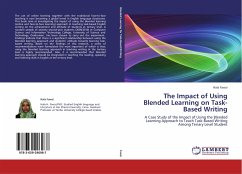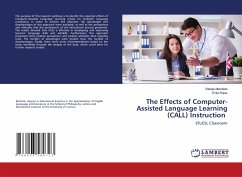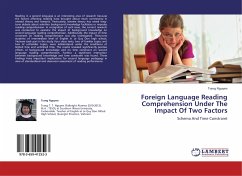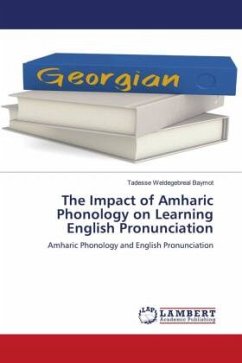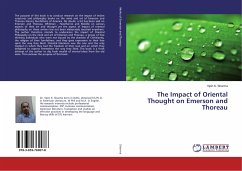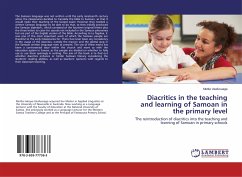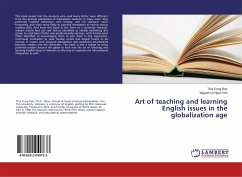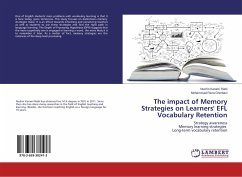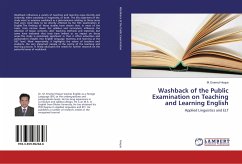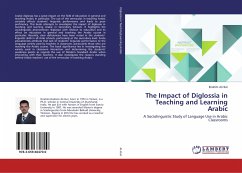
The Impact of Diglossia in Teaching and Learning Arabic
A Sociolinguistic Study of Language Use in Arabic Classrooms
Versandkostenfrei!
Versandfertig in 6-10 Tagen
34,99 €
inkl. MwSt.

PAYBACK Punkte
17 °P sammeln!
Arabic diglossia has a great impact on the field of education in general and teaching Arabic in particular. The use of the vernacular in teaching Arabic certainly affects students' linguistic performance and leads to poor proficiency. This book attempts to investigate the impact of diglossia in teaching and learning Arabic in Secondary Schools. It highlights the sociolinguistic phenomenon 'diglossia' with relation to education and its effect on education in general and teaching the Arabic course in particular. Recently, clear deficiencies have been noted in the students' linguistic skills in a...
Arabic diglossia has a great impact on the field of education in general and teaching Arabic in particular. The use of the vernacular in teaching Arabic certainly affects students' linguistic performance and leads to poor proficiency. This book attempts to investigate the impact of diglossia in teaching and learning Arabic in Secondary Schools. It highlights the sociolinguistic phenomenon 'diglossia' with relation to education and its effect on education in general and teaching the Arabic course in particular. Recently, clear deficiencies have been noted in the students' linguistic skills in all Arab schools, particularly at the secondary level. Some educationists attribute that lack of students' linguistic performance to the language variety used by teachers in classroom, particularly those who are teaching the Arabic course. The book significance lies in investigating the variety used in classroom interaction and determining the students' weakness points as regards the use of Modern Standard Arabic when interacting with their teachers. It also investigates the reasons standing behind Arabic teachers' use of the vernacular in teaching Arabic.



